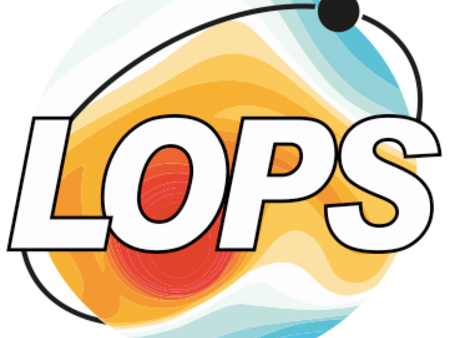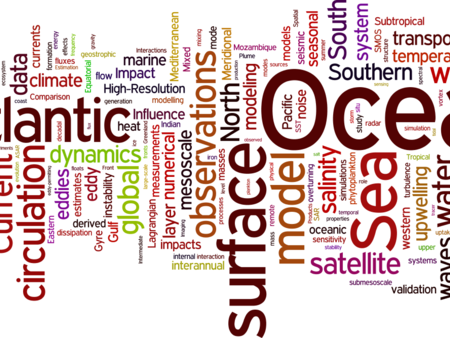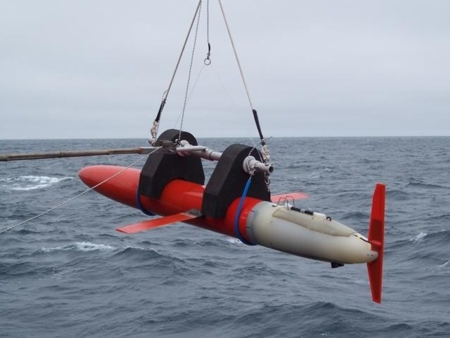Service National d'Observation Argo-France
What is Argo ?
In 2000, the international Argo observational program was launched by the IOC and WMO to observe the global in situ ocean temperature and salinity, in order to monitor the ocean's variability and understand its role in climate. To reach this scientific goal, the pre-requisite was to provide in near-real time profiles of ocean state parameters every 10 days for each 3x3 degrees area of the global ocean. This corresponds to about 3000 floats operating permanently at sea (Riser et al., 2016). Given the autonomous floats technology available at the beginning of the program in 2000, parameters were limited to temperature and salinity, sampling depth was limited to the first 2000m of the water column and sampling area was limited to the open ocean, away from marginal seas as well as high latitudes. It took about 8 years to the international community to reach this sampling target (from 2000 to the end of 2007). Then, more than ten years later (2018), more than 2 millions quality controlled profiles have been provided, overwhelming in one decade the amount of profiles ever carried out in the history of oceanography. In addition to the major increase in high quality data quantity due to Argo, the historical northern hemisphere and near-coastal biases are greatly reduced in the much more uniform global sampling. Argo also has rectified a major seasonal bias in sampling, particularly in the polar oceans. It is thus not surprising that the Argo program is now the backbone of in situ Global Ocean Observing System (GOOS) and hence revolutionizes our vision and understanding of the ocean in unexpected ways days after days.
The international Argo program aims to build and sustain a global real-time observational network of in-situ measurements integrated to other observational systems of the Earth in order to:
- observed climate variability from the seasonal to decadal timescale and to observe climate change of the oceans. This includes regional and global changes in oceanic heat, fresh water content, sea surface steric height and large scale circulation.
- provide observations for calibration and validation satellite remote measurements.
- provide observations to initialize and constraint numerical model simulations and operational ocean forecasting systems.
- promote new parameters and observation sites (biogeochemical parameters, deeper layers, high latitude, marginal seas) to foster emergence of a interdisciplinary in situ network measurement (physic, biogeochemical,…) to fill the observational gab of the core-Argo mission.
SNO Argo France
The French Argo national program is the French contribution to the international Argo program and to do so, relies on the SNO (Service National d'Observation) Argo-France and the Coriolis partnership. Argo France gathers all the French activities related to Argo and its extension toward deep and biogeochemical measurements. Argo France scientific activities are organized through the SNO Argo-France, which is part of the OSU IUEM (Institut Universitaire Europeen de la Mer Observatory). Two research laboratories are leading Argo France scientific activities: the "Laboratoire d’Océanographie Physique et Spatiale" (LOPS, Brest, France) and the "Laboratoire d’Océanographie de Villefranche – Institut Marin de environment de VilleFranche" (LOV-IMEV, Villefranche, France). Argo France operational activities are organized through the Coriolis partnership (IFREMER, SHOM, INSU, IRD, Météo France, CNES and IPEV) and its governance bodies. Euro-Argo central infrastructure and Argo France are part of the Ministry of Research national roadmap on large research infrastructure (TGIR). In the context of Argo France TGIR, part of Argo France activities has been labeled as an Observation System (Service National d'Observation, SNO) at the IUEM Observatory (OSU IUEM) and by French CNRS/INSU to support and organize French Argo activities and provide high quality data.
The objectives of the SNO Argo-France as defined in 2011 for the first SNO accreditation, have been updated as following:
- to provide research quality Argo data to the French scientific community in order to foster and promote the French contribution to climate studies, and more generally to oceanographic research conducted with Argo data (physical and biogeochemical parameters) either directly or through re-analysis or assimilation products.
- to consolidate and organize the French contribution to the international Argo program and to the European research infrastructure Euro-Argo
- to promote biogeochemical parameters measurements from Argo floats and an BGC-Argo (BioGeoChemical-Argo) network development
- to promote deep Argo measurements and deep Argo network development
Argo France web site link: www.argo-france.fr
Argo France is funded by :
- Ifremer, SHOM, CNES, INSU, IRD, Météo-France and IPEV through the multi-organisms Coriolis infrastructure
- the European Union, la Brittany Region, Conseil Général du Finistère, the city of Brest and Ifremer through the CREST Argo project
- the European Union (FP7) through the remOcean project
- SNO activities are supported CNRS/INSU
- The Institut Universitaire Européen de la Mer Observatory (OSU IUEM)







